Artificial intelligence (AI) has recently gained popularity in the music industry, specifically with the creation of AI-generated cover music. This type of music production involves using machine learning algorithms to analyze and replicate the sound and style of popular artists.
While there are certainly benefits to this method, such as increased efficiency and cost-effectiveness, there are also drawbacks that must be considered.
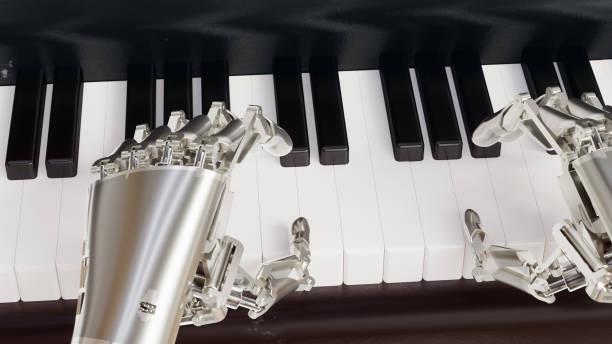
This comprehensive guide will explore the pros and cons of AI-generated cover music, providing insight into both the potential benefits and pitfalls of this technology.
Additionally, we will touch on other forms of AI-generated content in the music industry, including AI-generated articles and AI art search engines. This guide will cover everything from what are the pros and cons of AI to what are AI-generated images?
By the end, you’ll better understand what AI-generated cover music is, its legal implications, and how it’s affecting the music industry as a whole.
Pros of AI Cover Music
AI-generated cover music has several advantages, making it an attractive option for musicians and producers. Here are some of the key pros:
- Increased efficiency and speed of music creation:
One of the primary advantages of using AI in music production is the ability to generate high-quality music quickly and efficiently. With AI-generated cover music, artists can create multiple versions of a song in hours rather than weeks or even months.
- Ability to mimic the style and sound of popular artists:
Another advantage of AI-generated cover music is that it can mimic the style and sound of popular artists. This allows independent artists and small labels to create music that sounds like a major label or famous artist produced it without the associated costs.
- Cost-effective for independent artists and small labels:
AI-generated cover music is also cost-effective for independent artists and small labels. Instead of spending thousands of dollars on studio time, musicians can use AI software to produce their music at a fraction of the cost.
- Experimentation of new genres, audios, and sounds:
AI-generated cover music allows artists to experiment with new sounds and genres. Using machine learning algorithms, musicians can create music that blends different genres and styles or invent entirely new ones.
- Preservation of Music:
AI-generated cover music can help preserve and revive older songs and styles that might be lost to time. For example, an AI program could analyze and recreate the sounds and style of a particular era of music, allowing modern audiences to experience the music in a new way.
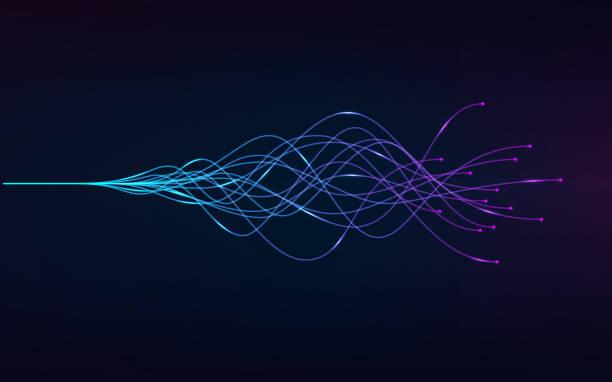
While there are certainly pros to AI-generated cover music, it’s important to consider the potential drawbacks as well. In the next section, we’ll explore the cons of AI cover music, including concerns about creativity and copyright infringement.
Cons of AI Cover Music
While there are certainly benefits to using AI in music production, there are also several drawbacks that must be considered. Here are some of the major disadvantages of cover music produced using AI:
- Concerns about creativity:
Some critics argue that AI-generated cover music lacks the creativity and originality of music created by human musicians. While AI software can mimic the style and sound of popular artists, it’s still limited by the data it’s trained on. As a result, some argue that AI-generated music needs to have the unique creative spark that makes music truly great.
- Copyright infringement:
Another major concern with AI-generated cover music is the potential for copyright infringement. While AI software can analyze and replicate the sound and style of popular artists, it’s unclear whether this constitutes fair use or copyright infringement. This has led to several legal battles over the use of AI-generated cover music, which we’ll explore in more detail later in this guide.
- Lack of emotional connection or empathy:
There are some individuals who contend that music produced by AI lacks the genuine emotional resonance and personal touch that is often found in music composed by human musicians. While AI software can mimic the sound and style of popular artists, it may not be able to capture the nuances and subtleties that make music truly powerful.
- Misrepresentation of Culture:
AI-generated cover music may not always respect the original artist’s intent or cultural context. For example, an AI program could create a cover of a song with significant cultural or historical meaning. Still, without understanding the cultural context or significance of the original, the AI-generated cover may unintentionally appropriate or misrepresent the original artist’s work.
- Reliance on technology in Music Production:
Another concern related to the growing usage of AI in music production is the possibility of becoming overly reliant on technology. As AI software becomes more advanced, musicians and producers may rely too heavily on it, leading to a lack of innovation and creativity in the music industry.
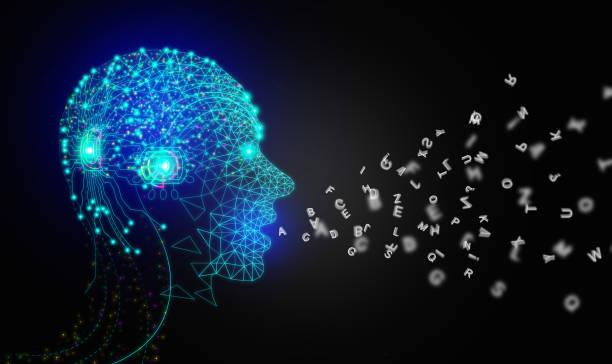
Overall, while technology has the potential to revolutionize the music industry, it’s important to consider its limitations and potential drawbacks as well.
Legal Perspective on AI Cover Music
As with any new technology, AI-generated cover music raises legal questions and concerns. A significant worry surrounding AI-generated music is the possibility of copyright infringement and the resulting legal ramifications. Here are some of the key legal perspectives to consider:
- Copyright Law
Copyright law provides legal protection to the original creators of a work, granting them exclusive rights to utilize and distribute their creation. AI-generated cover music raises questions about who holds the copyright to the final product – the original artist, the AI system, or the cover music producer.
Currently, copyright law does not specifically address AI-generated content, and there are no clear guidelines for determining copyright ownership in these cases. Some legal experts argue that the original artist holds the copyright to the underlying work. In contrast, others suggest that the AI system itself could be considered a co-author of the final product.
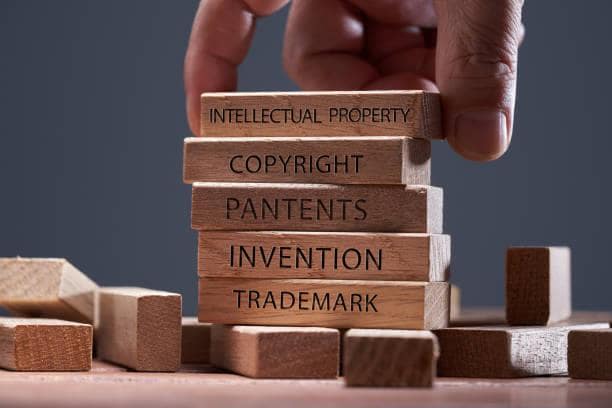
- Fair Use Doctrine
“Fair use” allows the use of material that is copyrighted in a limited manner, without the consent of the original copyright owner, under specific circumstances. AI-generated cover music could fall under fair use if it is used for educational or research purposes, but this would depend on the specific circumstances of each case.
- Sampling and Remixing
Sampling and remixing are common practices in the music industry, and AI-generated cover music can be seen as a form of sampling or remixing. However, there are still legal questions about how much of a song can be used in a cover without infringing on copyright.
- Compulsory Licenses
In the US, the Copyright Act provides for compulsory licenses for certain types of music, allowing cover artists to use copyrighted works without permission from the original artist. However, these licenses only apply to certain situations, and there are still legal questions about how they apply to AI-generated cover music.
Despite the legal uncertainties surrounding AI-generated cover music, there have already been legal battles over the use of AI-generated content in the music industry. For example, in 2019, the estate of Marvin Gaye sued Pharrell Williams over using a “vibe” and “groove” in a song, claiming that it infringed on Gaye’s copyright. This case raises questions about the extent to which AI systems can be used to replicate existing works without infringing on copyright.
In the next section, we will explore the potential ethical concerns surrounding AI-generated cover music and other forms of AI-generated content in the music industry, such as AI-generated articles and AI art search engines.
The Battle for Copyright in the Age of AI: Music Industry vs. Tech Companies
Universal Music Group, a major player in the recorded music industry, has taken steps to prevent the use of AI technology in creating new music by requesting that music streaming services, such as Spotify, take measures to block developers from accessing their copyrighted material.
The company has also been issuing takedown requests for AI-generated uploads found online. The music industry as a whole is worried that governments could potentially weaken copyright laws in favor of tech companies, which could have negative impacts on creative industries such as music, literature, films, and photography.
In the UK, the government is considering changes to the rules which would allow tech firms to use creative works, including music catalogs, as training data. Critics argue that such a change would be contrary to international law.
Learn more about this particular attempt at gaining back their rights by the music industry here.
Money Being Made Off Other People’s Voices
One of the biggest concerns with AI-generated cover music is the potential for individuals or companies to profit from the voices of other artists without their consent. A few points to note about this are as follow:
- Voice Ownership
AI-generated cover music raises questions about who owns the original artist’s voice rights. While copyright law protects the original creators of a work, it is unclear whether it applies to an artist’s voice.
- Lack of Compensation for Original Artists
If AI is used to create a cover of an existing song, the original artist may not be compensated for using their work. This can be especially problematic if the cover becomes popular and generates significant revenue for the cover music producer.
- Loss of Creative Control
Another possible concern for artists is the potential loss of creative control over their own work if AI is heavily relied upon in the music industry. If an AI system creates a cover of their song, the artist may not have any say in how the final product sounds.
Devaluing Original Artistic Expression
The use of AI-generated cover music may also devalue the original artistic expression of the original artist. If an AI system can create a cover of a song with little input or creativity required from the cover music producer, it may be seen as less valuable than a cover produced through more traditional means.
Potential for Misrepresentation
Finally, there is a concern that AI-generated cover music could misrepresent the original artist or their work. For example, an AI system could create a cover of a song that is vastly different from the original, potentially confusing or misleading listeners.
Despite this, there are also advantages to AI-generated cover music, such as the ability to create new and unique versions of existing songs.
Other AI-Generated Content in the Music Industry
- AI-Generated Music
With advancements in AI technology, it is now possible for AI systems to produce music entirely on their own. Some AI systems are even capable of generating original pieces that are virtually indistinguishable from those composed by humans.
While this can revolutionize music creation, there are concerns about the loss of human creativity and the potential for AI-generated music to sound formulaic or uninspired.
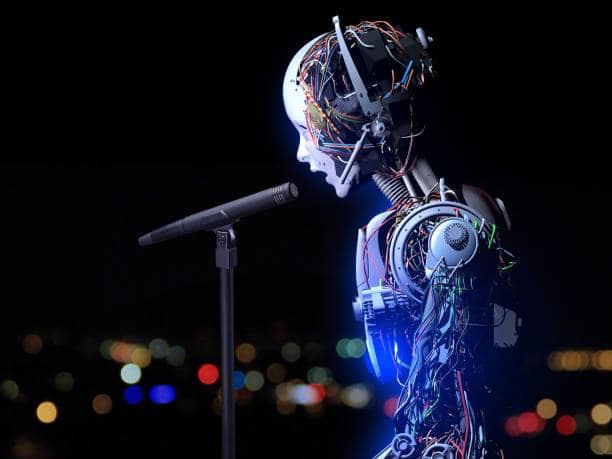
AI-Generated Articles
AI systems are also used to generate music articles, such as album reviews or artist interviews. While this technology can save time and resources, there are concerns about the quality and authenticity of the content, as well as the potential for AI-generated articles to lack the human touch and emotional connection that readers often seek in music writing.
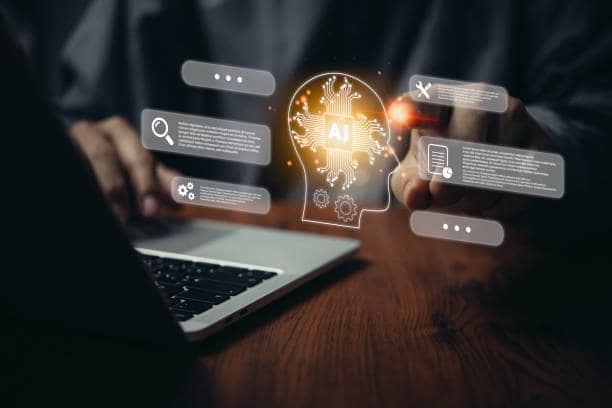
AI Art Search Engines
Finally, some AI systems are used to search and analyze music-related artwork, such as album covers or music videos. These systems can help artists, and record labels identify trends and insights in music-related visual art. Still, there are concerns about the accuracy and usefulness of the data generated by these systems. And, indeed, the point that comes across with the question of what is an ai-generated image.
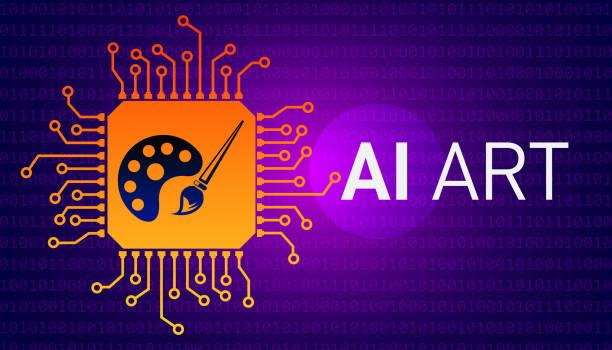
As with AI-generated cover music, there are both potential benefits and drawbacks to these other forms of AI-generated content in the music industry. In the next section, we will explore what are the pros and cons of AI in more detail.
The Future of Music: How AI-Generated Cover Music is Changing the Industry
The use of AI in music creation and production is rapidly expanding and is expected to continue growing. AI-generated cover music is just one example of how this technology is changing the music industry, and it’s not hard to imagine a future where AI plays an even larger role in music creation.
There are many potential implications to consider, both positive and negative. On the positive side, AI-generated music could help democratize the industry, making it easier for aspiring artists to create high-quality music with minimal resources.
Additionally, AI-generated music could also lead to new creative possibilities and collaborations, as artists can access new sounds and techniques.
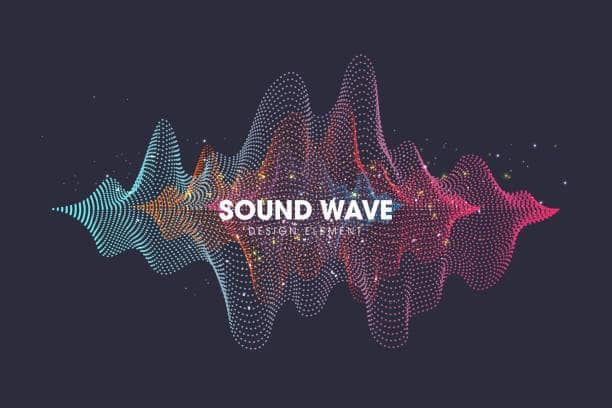
Still, cons are prominent as well. For example, there are concerns that AI-generated music could lead to a homogenization of the industry, with artists relying too heavily on pre-existing formulas and sounds.
Additionally, critics have raised concerns about the impact of AI-generated music on human creativity, with some arguing that AI-generated music lacks the emotional depth and authenticity of music created by human musicians.
Overall, it’s clear that AI-generated cover music is having a significant impact on the music industry, and it will be important for artists, consumers, and the industry as a whole to carefully consider the potential implications of this technology as it continues to evolve.
It is important to exercise caution in the use of AI-generated music, despite its potential benefits. The technology should be employed in a manner that fosters authenticity, creativity, and artistic integrity.
The Bottom Line
On the one hand, AI-generated cover music, music compositions, articles, and art search engines can save time and resources, unlock new creative possibilities, and create new revenue streams.
However, there are also problems, such as the loss of human creativity, the potential for AI-generated content to lack authenticity and emotional resonance, and the ethical issues surrounding using other people’s voices and images.
Since the advent of AI has become more widespread, it will be important for the music industry to carefully consider the potential impact of AI-generated content on artistic integrity, intellectual property, and consumer trust.
Ultimately, the key to successfully integrating AI in the music industry will be finding a balance between the benefits and drawbacks and ensuring that AI is used ethically and responsibly. This approach would help foster a music industry that is both innovative and socially responsible.




